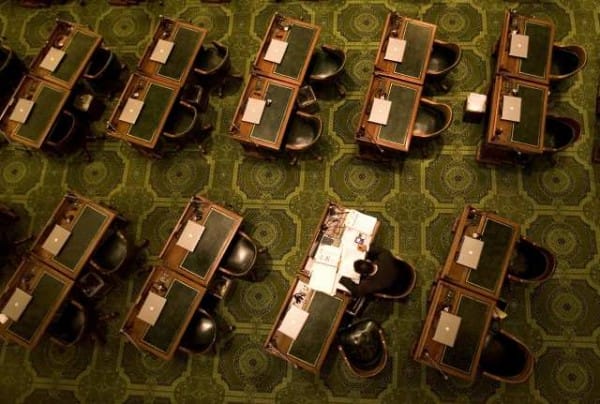Four California Energy Bills to Track This Legislative Session

Photo Credit: Robert Durell / Los Angeles Times

The California state legislature is back in session and the next six weeks will be a grind for legislators. There's a slew of bills waiting to be heard and voted on, but here are four important bills that can change the landscape of energy and environmental policy in the state.
Senate Bill 4 -- Hydraulic Fracturing
SB 4 is sponsored by Senator Fran Pavley and would place regulations on hydraulic fracturing. There are several aspects to the bill, such as the establishment of a study on the effects of fracking, changes to the penalties for fracking violations, and a more robust process to obtain a fracking permit.
The most notable provision set out by the bill is the disclosure of chemicals used and produced in the fracking process.
Fracking produces natural gas and California is home to the largest shale formation in Monterey. There is potentially 15 billion barrels of extractable oil in the area.
Assembly Bill 327 -- Energy Rate Structure
AB 327 has the potential to make the deepest impact in energy policy in California. Assemblymember Henry Perea is sponsoring the bill. Small business, families, and seniors could be worried about a potential big spike in their energy bill. The idea is to make rates fairer by making energy rates more equitable.
California has a tiered energy rate structure that is not based on income. Low-use energy consumers have their energy rates capped by current law. As a consequence, upper tiered customers -- those who use more energy out of necessity -- must bear the burden of increased energy prices.
Asm. Perea stated in the analysis of AB 327:
“[L]aws meant to protect residential rate users are now preventing the CPUC from governing the rate structure and making necessary changes for the thousands of middle to low income families struggling to pay high energy costs.”
Senate Bill 731 - California Environmental Quality Act (CEQA)
SB 731 makes changes to the current California Environmental Quality Act by easing the regulations on certain residential, mixed-use, and commercial "employment center" projects near existing or planned transit stops.
Senate pro Tem Darrell Steinberg stated:
"[The] bill is the result of months of discussion and negotiation with key representatives from the business, environmental, and organized labor communities."
Senate Bill 754 -- Environmental Impact Reports
SB 754 is led by Senator Noreen Evans and is intended to strengthen the current CEQA. Environmental impact reports (EIR) are required in order to take on new projects in California. The bill requires that if a public agency contracts an EIR, that it must be with environmental consultants.
-----
September 13 is the last day for each house to pass bills. Each bill that passes will be sent to Governor Brown's office for a signature or veto. Any legislation that gets signed into law will take effect on New Year's Day 2014.



